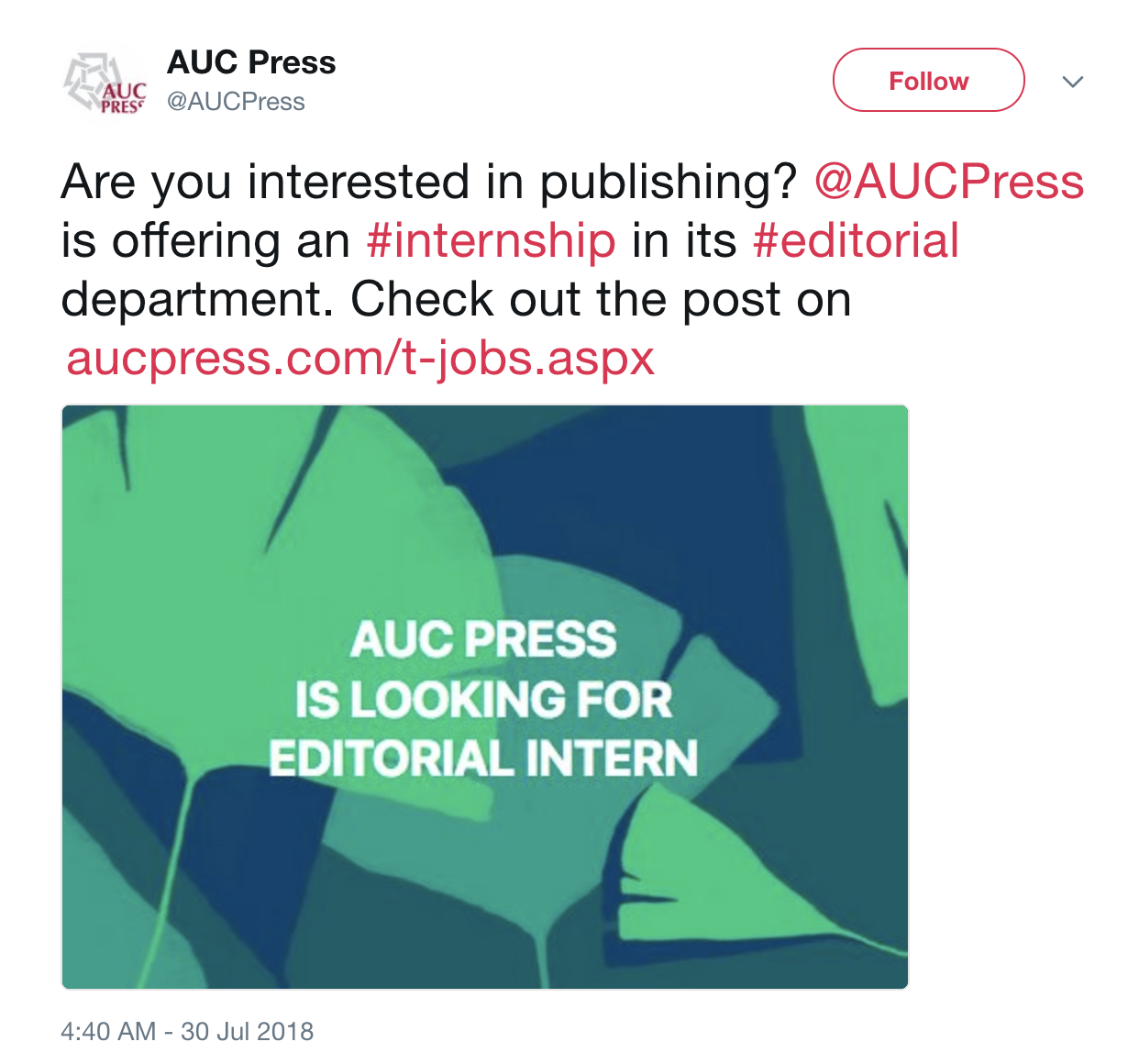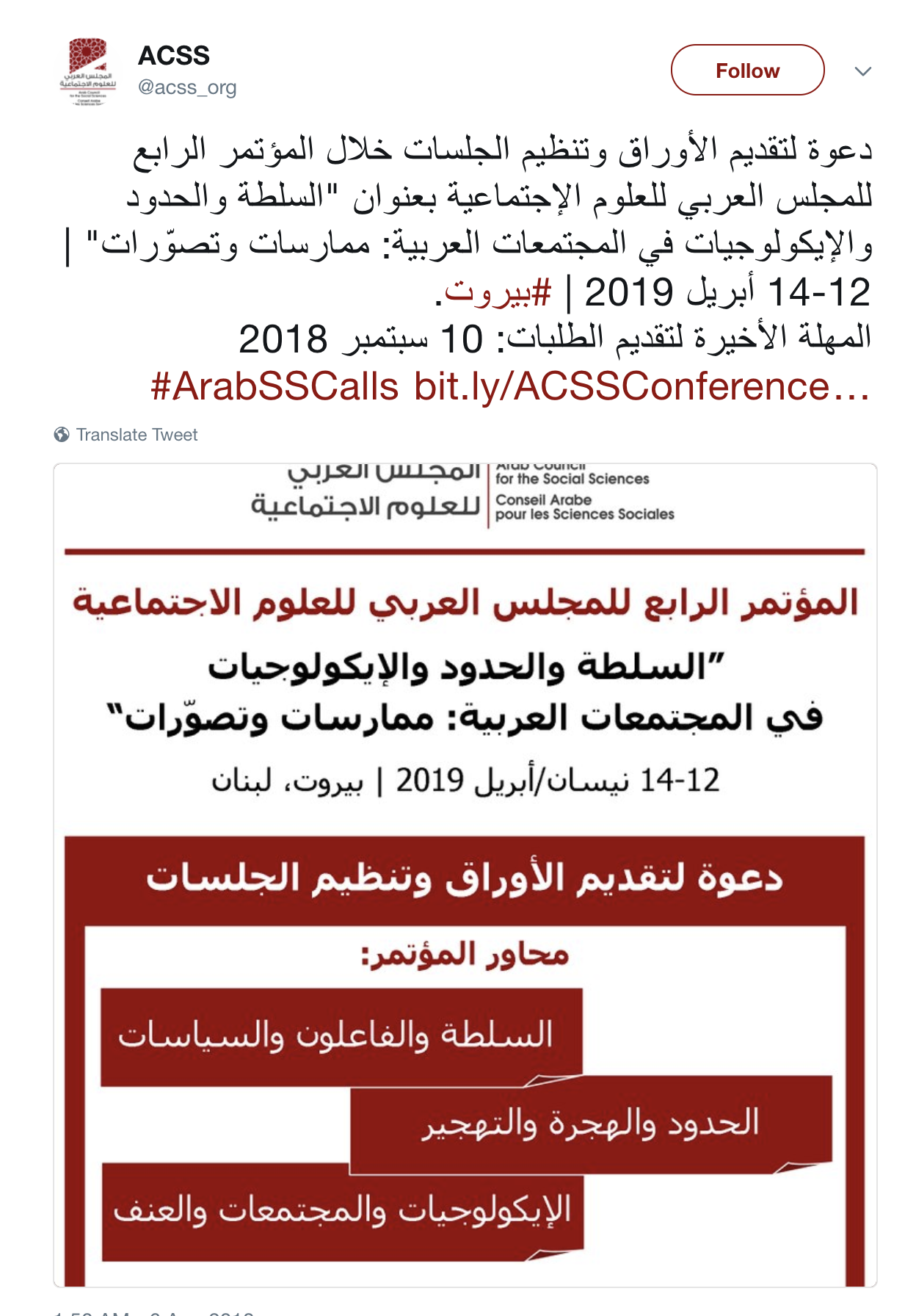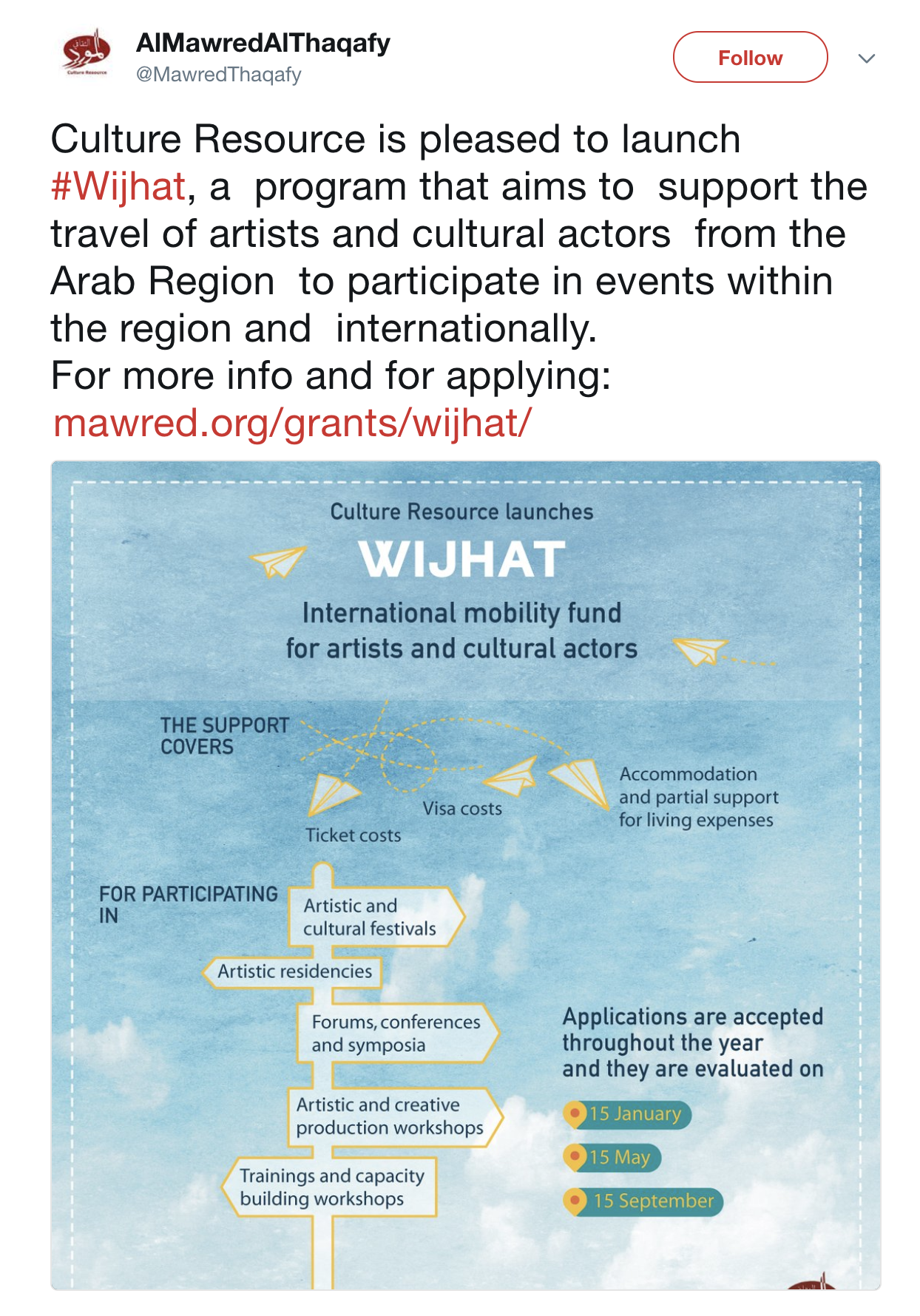[This roundup is compiled by the Arab Council for the Social Sciences (ACSS); it features calls for applications focused on social sciences in the Arab region. Use the hashtag #ArabSSCalls to be featured.]
Arab Council for the Social Sciences
Call for Papers: Special Collection of @ComicsGrid on Creating Comics, Creative Comics. Submissions due by 1 October 2018. @ComicsGrid is an #openaccess, peer-reviewed academic journal dedicated to #comics #scholarship. #ArabSSCalls cc @RmNgb @lenamerhej
Call for Papers: Fall 2019 issue of WSQ on "Together," published by @FeministPress. Papers must engage #feminist theory to reflect on debates and theorizations about limitations and possibilities of coming together. Deadline: 15 September 2018. http://ow.ly/c9sh30laVwW #ArabSSCalls
دعوة لتقديم الأوراق وتنظيم الجلسات خلال المؤتمر الرابع للمجلس العربي للعلوم الإجتماعية بعنوان "السلطة والحدود والإيكولوجيات في المجتمعات العربية: ممارسات وتصوّرات" | 12-14 أبريل 2019 | #بيروت.
المهلة الأخيرة لتقديم الطلبات: 10 سبتمبر 2018 http://bit.ly/ACSSConference2019 … #ِArabSSCalls
آ
آخر شهر لتقديم الطلبات لبرنامج المنح الصغيرة الذي يهدف إلى دعم النشاطات التالية: تقديم الأعمال في المؤتمرات، الحصول على تدريب، القيام بدراسات إستطلاعية، تنظيم نشاطات لنشر الأبحاث، تنظيم ورش العمل.
المهلة الأخيرة لتقديم الطلبات: 31 أغسطس 2018 http://ow.ly/jqw230lb6QG #ArabSSCalls
دعوة لتقديم الأوراق: المؤتمر السنوي السادس للدراسات التاريخية حول "الحكومة العربية في #دمشق بين 1918 – 1920" |26-27 أبريل 2019 | #بيروت | من تنظيم @ArabCenter_ar. المهلة الأخيرة لتقديم الملخصات: 30 سبتمبر 2018 http://ow.ly/vV0P30l97Gm #ArabSSCalls
Call for Papers: Journal of Arabian #Humanities n°13 Special issue: “#Education in the Arabian Peninsula: Narratives, Political Issues and Social Dynamics (19th–21st Centuries)”. Abstracts due by 15 September 2018 http://ow.ly/ZiDA30ljsD3 #ArabSSCalls #openaccess
Save the Date: Fourth ACSS Conference on “Power, Borders and Ecologies in Arab Societies: Practices and Imaginaries” | 12-14 April 2019 | #Beirut, Lebanon. Applications for paper proposals and organized panels are open till 10 September. http://bit.ly/ACSSConference2019 …#ArabSSCalls
Al Mawred Al Thaqafy
Culture Resource is pleased to launch #Wijhat, a program that aims to support the travel of artists and cultural actors from the Arab region to participate in events within the region and internationally.
For more info and for applying: http://mawred.org/grants/wijhat/
Issam Fares Institute for Public Policy and International Affairs
#JobsMENA: @ifi_aub is looking for a #research assistant to support the Social Justice and the #City Program for a four-month period with possibility of renewal. Application Deadline: 25 August 2018 http://ow.ly/PMTv30lfHbu #ArabSSCalls
American University in Cairo Press
Are you interested in publishing? @AUCPress is offering an #internship in its #editorial department. Check out the post on http://www.aucpress.com/t-jobs.aspx


